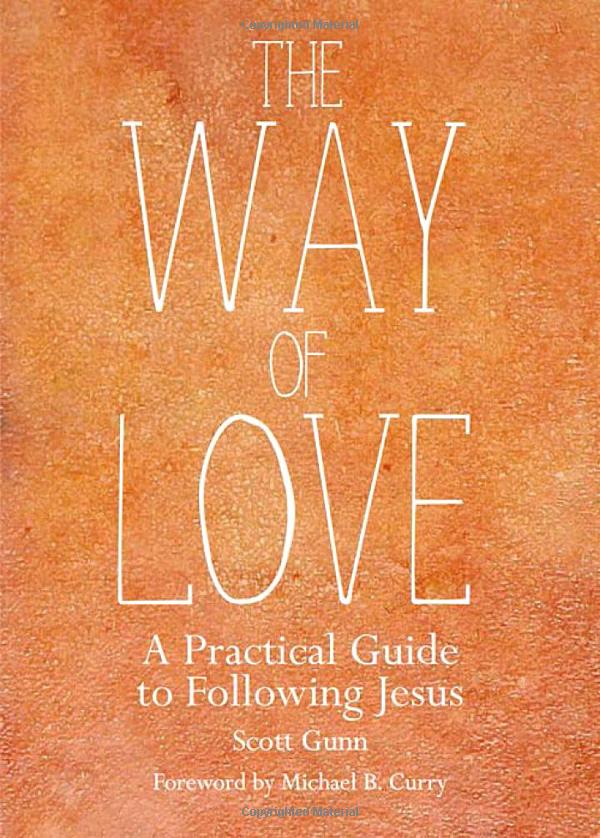This Tuesday we are wrapping up our study of the Rev. Scott Gunn’s book: The Way of Love: A Practical Guide to Following Jesus. We will be discussing Chapter 7 “Rest” and Chapter 8 “Next Steps.” We will begin our study of 1 Peter the following Tuesday.
Work!:
Rest is generally not part of what it means to be an American or a Protestant. Going back to John Calvin (who influenced both the Church of England and Dutch, English, and Scottish society) we are “taught that all men must work, even the rich, because to work was the will of God. It was the duty of men to serve as God’s instruments here on earth, to reshape the world in the fashion of the Kingdom of God, and to become a part of the continuing process of His creation.” God formed Adam for the purpose of working the Garden. Gen. 2:15. We know that God rested on the seventh day, but that he rested only after he completed all of his work. Gen. 2:1-2.
Growing up, I was always taught that work was never complete. There is always something more to do. Nothing gets accomplished if I am not working. To not work, simply means to be lazy, which is a sin. Even at church, the litter outside won’t clean itself up, the bulletins don’t print themselves, a semon won’t write itself, the choir isn’t on key without practice, and these emails aren’t ghostwritten. Our very calling (Latin: vocation) is to work. Busyiness is next to godliness. The idea of rest is somewhat foreign to me. (In defense of my upbringing, several family members of my grandparents’ generation barely worked, drank too much, and thereby failed to support their family and their community. They were ne’er-do-wells.)
Rest!:
To rest, however, is one of God’s commandments. Deut. 5:12-15. Having a day of rest was unique to Israel. On one level, a Sabbath rest is simply physically resting, if for no other reason, than to recover. The Sabbath commandment was one of the first labor laws limiting the hours that a person or an animal could work, allowing these ancient means of production the ability to physically recover. Modern studies show that rest actually helps us work better, more efficiently, and more productively. On one level, we rest, so that we can get back to work. Even Calvin strictly enforced a day of rest.
On a deeper level, however, resting is an act of rebellion. In his book, Sabbath as Resistance, Walter Brueggemann (b.1933) writes that resting should be seen as an act of resistance against the powers of the world and striking a blow for the alternative to this world which is the Kingdom of Heaven. When we Rest, we are saying “no” to a society and an economy based upon achievement, performance, consumption, and possessions. When we Rest, in prayer or contemplation, we are saying “yes” to God; when we Rest in the presence of others, we are saying “yes” to human relationships, and when we simply Rest with ourselves, we are saying “yes” to life itself.
How to Rest:
There are numerous websites that will teach us how to rest. Just use Google. In all of these websites and going back to Deuteronomy, the basic idea of learning to rest is to schedule a time to rest. Rev. Gunn does point out, however, that “not working” is not always “resting.” p.119. Whether the activity is work or not depends a lot on the individual. The key, as Rev. Gunn writes, is to make the scheduled rest a habit. This means not only scheduling the rest routinely but (as where I always falter) declining other activities during this scheduled time. A time of rest is not to be an open date on the calendar.
Reflection Questions:
Rev. Gunn ends his chapter on “Rest” with the following questions:
1. When is a time you rested in a way that helped you grow in your faith?
2. What keeps you from resting?
3. What might you do to rest in new ways, more often?
Dinner is at 6. The menu is a chicken potato casserole. Discussion about 6:45. Hope to see you here!
The apostles returned to Jesus, and told him all that they had done and taught. And he said to them, “Come away by yourselves to a lonely place, and rest a while.” For many were coming and going, and they had no leisure even to eat. And they went away in the boat to a lonely place by themselves.
Mark 6:30-32

